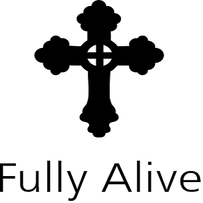|
by Erik Ritland
"As Dante rightly points out by putting betrayers in the lowest rung of his Inferno, it is the darkness of betrayal that cuts to the heart in the most profound way. It's no surprise that Judas was so full of grief that he ended up killing himself." Fully Alive’s Lenten Scriptural Commentary helps Christians get more out of Lent by taking God’s word seriously. Mostly avoiding personal stories and anecdotes, our commentary dives deeply into the scripture readings for each day and applies them to the broader context of Lent. We use the daily Mass readings from the Catholic lectionary. If possible, read each passage slowly, taking in each word. If you find that you’ve hurried through a reading, read it over a few more times. Let the words reverberate in your heart. After you’ve let it sink in, read our Lenten Scriptural Commentary. Wednesday of Holy Week In today’s readings, Isaiah speaks of the mysterious Suffering Servant and Judas seals his fate. Readings: Is 50:4-9a/Mt 26:14-25 Click here to read the complete text from the USCCB website See, the Lord GOD is my help; who will prove me wrong? (cf Is 50: 4-9a) Jesus makes it very clear, especially in the Gospel of John, that He does His work through the power of God the Father. That is why He is able to preach His message fearlessly. That is why He is able to ascend to Calvary with faith, knowing that God will help Him. The same God that helped Jesus and gave Him power – the very same God, the very same power – is available to all of us, if only we’ll accept the life-changing invitation. When it was evening, he reclined at table with the Twelve. And while they were eating, he said, "Amen, I say to you, one of you will betray me." Deeply distressed at this, they began to say to him one after another, "Surely it is not I, Lord?" He said in reply, "He who has dipped his hand into the dish with me is the one who will betray me. The Son of Man indeed goes, as it is written of him, but woe to that man by whom the Son of Man is betrayed. It would be better for that man if he had never been born." Then Judas, his betrayer, said in reply, "Surely it is not I, Rabbi?" He answered, "You have said so." (cf. Mt 26: 14-25) Psalm 41:9 predicted this scene chillingly: “Yea, mine own familiar friend, in whom I trusted, which did eat of my bread, hath lifted up his heel against me.” The darkness of sin was all around Jesus during His final hours: the darkness of temptation, the darkness of denial, the darkness of abandonment, the darkness of cowardice. But as Dante rightly points out by putting betrayers in the lowest rung of his Inferno, it is the darkness of betrayal that cuts to the heart in the most profound way. It's no surprise that Judas was so full of grief that he ended up killing himself. But it didn’t have to be that way. It has been rightly said that Judas’ greatest sin wasn’t his betrayal, but that he didn’t seek forgiveness. All Judas had to do was repent of his wrongdoing and Jesus would have welcomed him back with open arms. God seeks this same repentance from all of us, and it is our repentance that makes us right with Him and sets us free in the most profound way. Erik Ritland is a writer and musician. The founder of Fully Alive Christian Media, he also created The Minnesota Sport Ramble and is a writer and copy editor for Music in Minnesota. He was Lead Staff Writer for Minnesota culture blogs Curious North and Hometown Hustle. Reach him via email.
0 Comments
Leave a Reply. |
Authors
Erik Ritland received his MA in Theology in 2017. He's the founder and content manager of Fully Alive Christian Media and Rambling On, copy editor and writer for Music in Minnesota, and an acclaimed songwriter. Archives
April 2019
Categories |

 RSS Feed
RSS Feed
